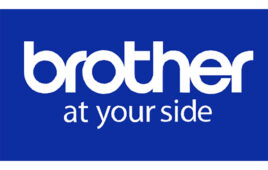 Industry standards improve profitability by reducing costs and improving competitiveness.
Industry standards improve profitability by reducing costs and improving competitiveness.
By Ed Collupy
Standards, in my early days of retailing, were always there to set expectations, something to work by, and measure compliance success with. Then I learned about technical standards. NAXML, EDI, ISO, ARTS, PCI—and the acronyms go on. These weren’t as easy to understand and were sometimes competing with one another. But I began to discover that underlying the “geek speak” was something where gears were in motion to make technology work within a business more efficiently and in an integrated way.
The petroleum and c-store industry in the U.S. began talking about standards at a time when systems being used at c-stores were catching up to other retail systems and were challenged by some of the industry’s unique characteristics often driven by fuel considerations.
Recognizing the need for fuel dispensers to “talk” to point of sale (POS) systems, and POS systems to “talk” to back-office systems, and back-office systems to “talk” to fuel suppliers and inventory systems, a standards body, now Conexxus—originally known as PCATS—got underway.
It’s been a multi-year journey and as Linda Toth, director of standards, at Conexxus said, “if you own or manage a convenience store, chances are very high that one or more of your equipment vendors has incorporated a Conexxus standard.”
In May, retailers, suppliers and service providers met to refine existing standards, take steps to implement new standards, and to discuss what standards will be needed as the petroleum and c-store industry continues to put technology solutions to use throughout its stores and enterprise.
Toth also noted, “Conexxus gives suppliers and retailers a place to collaborate on standards for the industry. These standards ultimately improve profitability by reducing the cost of IT ownership as well as improve competitiveness.”
EVOLVING STANDARDS
Let’s take a look inside some of the working mechanisms of the Conexxus working groups and the standards.
POS/Back Office (POSBO). As one of the leaders of a back-office solution put it, “standards are a great starting place,” and, in fact, this has been lived out since POSBO is one of the longest standing committees and most used standard. The POSBO specification has been adopted very widely and allows the POS to communicate with the back office in a standard format to allow for configuration and reporting.
This active committee is looking to expand the standard to include elements that will help with near real-time capture of point of purchase journal transaction and loss prevention data.
Retail Financial Transactions. There are several widely adopted and in-use payments standards along with the mobile payments one gaining traction. The team from mShift, who presented their solution at the recent conference, talked to me about how Version 1 of the Mobile standard “enabled” them to move forward and more importantly how it will provide them value scaling from one POS provider quickly to others.
- Electronic Payment Server – A widely-adopted standard that separates payment transaction functions from the POS system.
- Loyalty – Allows the POS to speak to loyalty systems and is also widely adopted with some attendees at the conference describing it as “the best standard.”
- Payment System Product Codes – Their use in POS systems and in transactions being sent to a host processor minimizes the translation needed to accurately identify products sold.
- Mobile Payments – There are several implementations of Version 1 as the working group proceeds with gaining approval of Version 2, which will incorporate loyalty.
Electronic Business to Business (EB2B). Here’s where representatives from consumer packaged goods companies have and continue to make contributions; Coca Cola and Anheuser Busch continue to lead the way advocating for retailer adoption that will lead to a more efficient work process in the store and at the home office.
- Retail Merchandise – Includes standards related to invoices, item promotion, item price, pre-delivery notice and purchase order. These NAXML standards are an alternative to electronic data interchange (EDI) and provide less of a barrier to implementation. From my own experience, processing invoices using the NAXML standard provided suppliers, from the very small to the industry’s largest, an opportunity to save store managers time and allow accounting to make an accurate and timely payment.
- Motor Fuels & Lottery – A portion of the technical standards are schemas; the organization of data as part of a plan to construct a system. The Motor Fuels group has published schema for invoices, prices, bill of lading, etc., while similarly there is a set of schemas for lottery.
Device Integration. There are some standards around cash management safes and electronic fuel price signs where adoption is less than widespread. However, this working group is in the midst of developing a Site Asset standard that should be released later this year; this in response to the ongoing requirements coming from the ever-evolving PCI DSS (Payment Card Industry Data Security Standard).
- A Forecourt Device Controller specification – Will incorporate the work that another standards body, IFSF (International Forecourt Standards Forum), has and continues to update. This standard will allow it to work in North America and is expected to be released later this year.
Conexxus has recognized the importance of security throughout the work it does and has taken a lead role on behalf of the industry in this area becoming an advocate and educator. The Data Security committee, going forward, will play a role in each technical committee ensuring that the development of updated and new standards take a secure approach.
Standards evolve and, more importantly, for the petroleum and c-store industry they are now but one gear that keeps technology moving ahead in the industry. With many gears in motion, the standards have also become a platform for sharing.
![CSD Standards Infographic [1000296]](https://cstoredecisions.com/wp-content/uploads/2016/05/CSD-Standards-Infographic-1000296.jpg)
Ed Collupy, executive consultant at W. Capra Consulting Group can be reached at [email protected] or (919) 775-9696. Be sure to visit www.capraplus.com for more retail technology and business insights.




